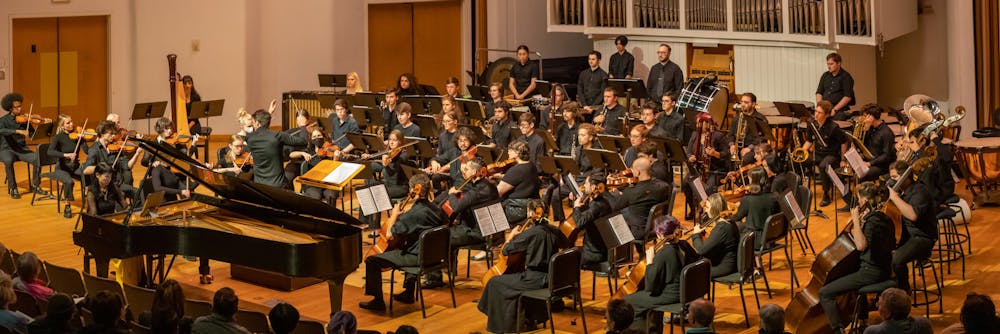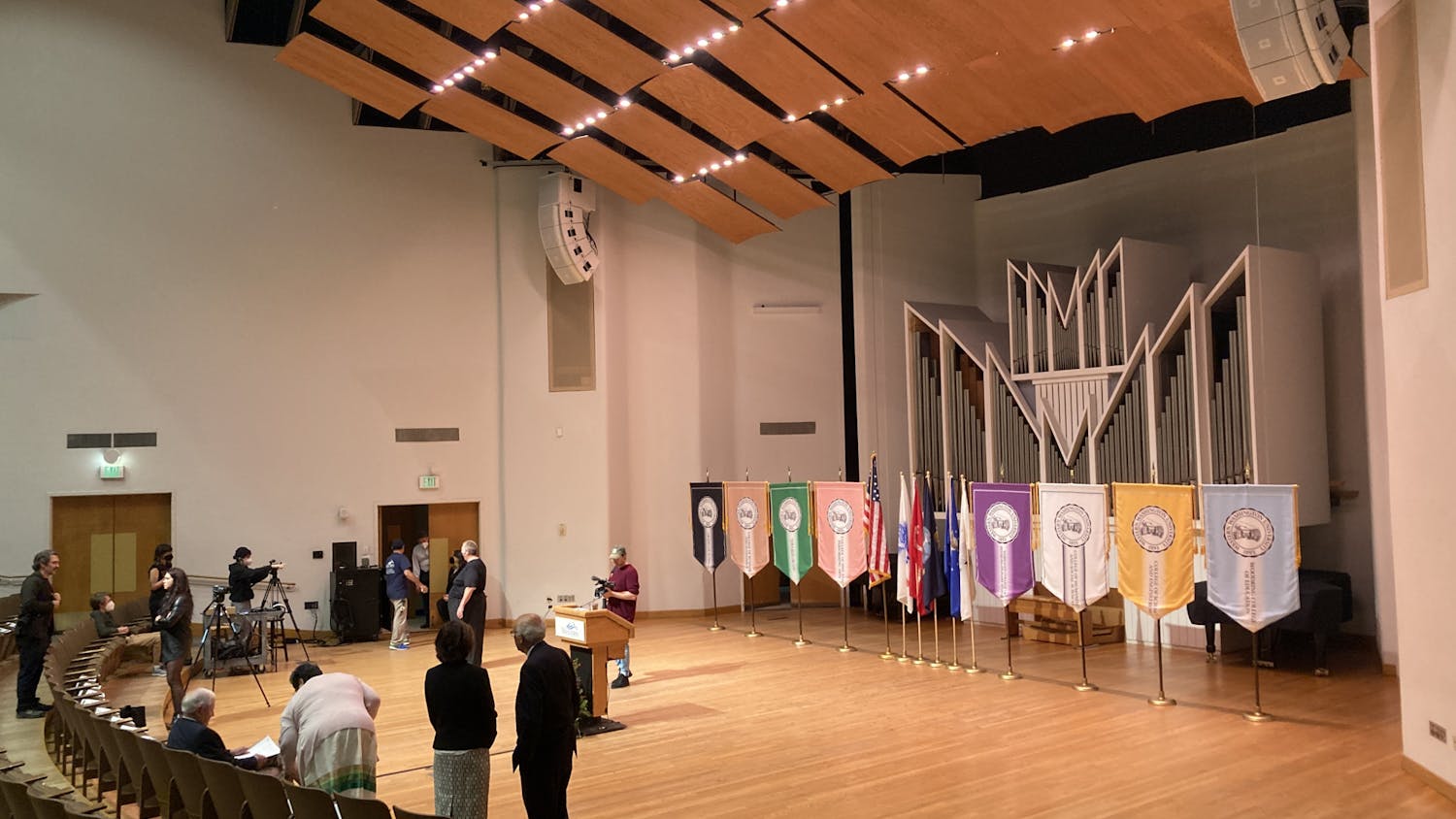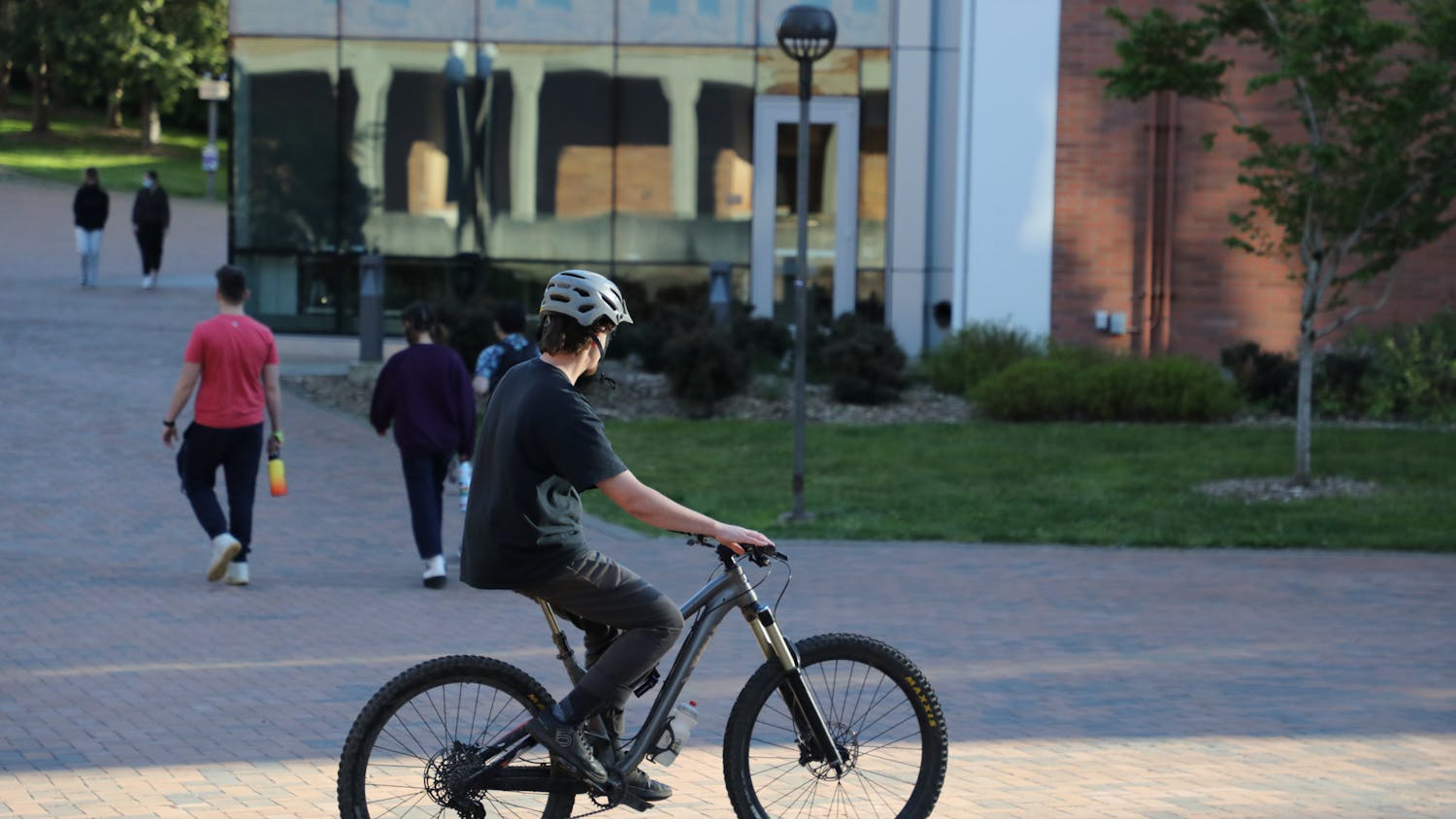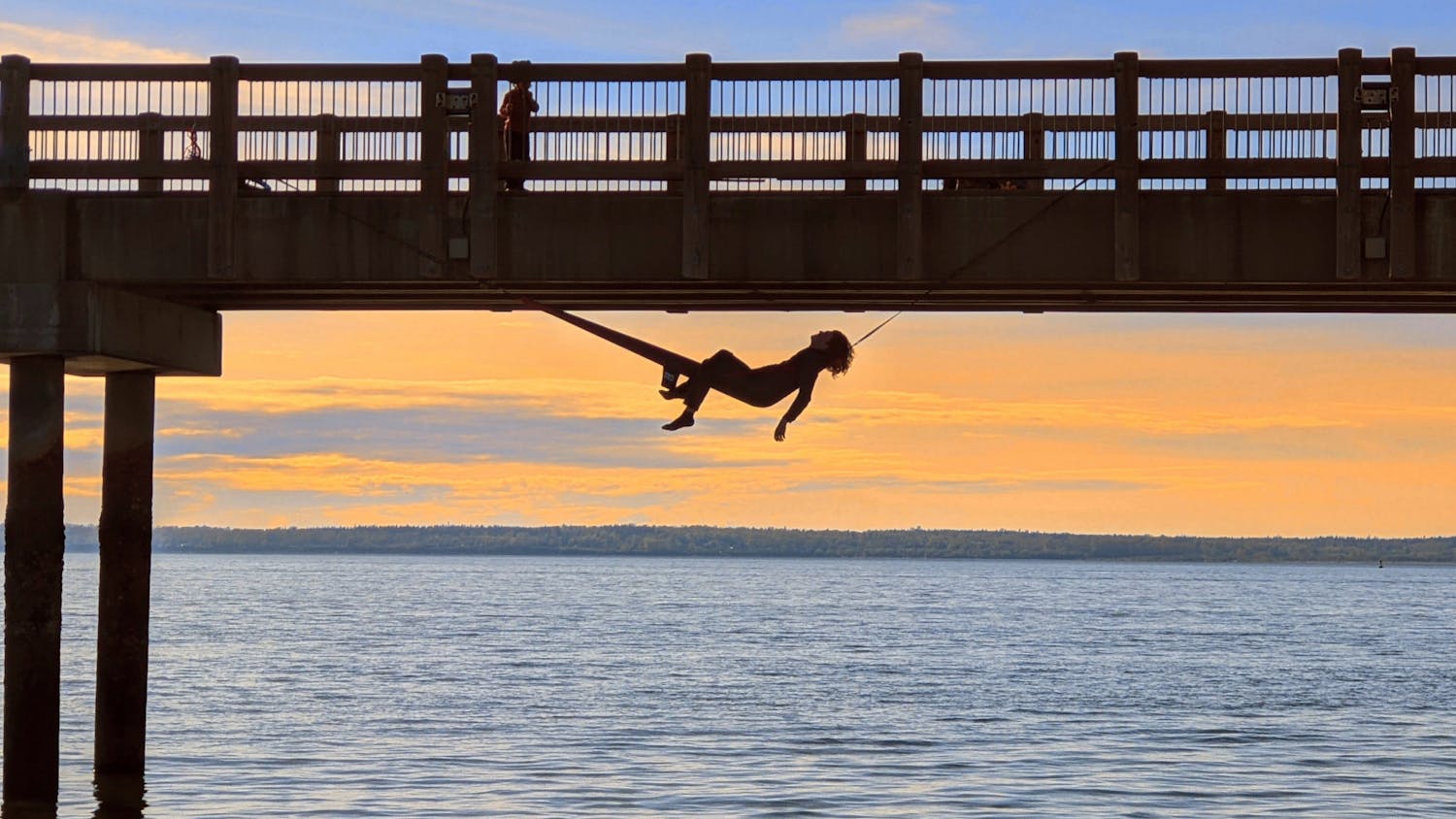In 2006, the Seattle Symphony Orchestra debuted a piece commissioned by Upper Skagit elder Vi Hilbert and composed by Bruce Ruddell titled “The Healing Heart of the First People of this Land.” After remaining unplayed for 16 years, the piece is being revived at Western Washington University on Nov. 9.
The inspiration for the piece comes from two sacred Coast Salish songs that were entrusted to Ruddell by Hilbert: a healing song from Hilbert’s cousin and Chief Seattle’s Thunderpower song. It also features a bear rattle, a cedar bark rattle and a frame drum made of animal skin, all of which are native to this region and were loaned to the Western symphony by Lummi musician Antone George.
Hilbert said she decided to commission the piece in the wake of the 9/11 tragedy after receiving a vision to share her people’s music. She hoped they would bring some much-needed healing to a broken nation.
“She was so troubled by the pain she saw happening in the world that she asked the ancestors, the spirits, what could one person do to make a difference,” said Hilbert’s granddaughter and director of Lushootseed research Jill LaPointe. “And the answer that came back to her was music. The whole world has music in some form or another.”
Getting to play such a unique and culturally significant piece has given Western’s Director of Orchestral Studies, Ryan Dudenbostel, a chance to not only educate himself on Coast Salish culture but has also challenged how he approaches a piece of music.
“The piece is a lot different in style than a lot of the music that we play in that it tends to sit in one place musically for a long amount of time,” Dudenbostel said. “Early on, there was a feeling of, like, this needs to go somewhere, transition and develop into a new theme.”
Most symphony orchestras are used to playing Western or European orchestral music. These genres often place a lot of emphasis on making the piece dynamic and intentional by always making sure a piece is building to something greater.
Dudenbostel explained that the orchestra is a European invention, meaning that most music that’s written for an orchestral setting is infused with European traditions. Hilbert and Ruddell’s piece provides a stark and refreshing contrast.
“This piece just kind of ‘is,’” Dudenbostel said, laughing. “For lack of a better word, it enjoys stasis. It’s taken a while for us, myself included, to come around to what this piece wants to be and how to adjust our own perspective on it so that it is what it wants to be.”
Dudenbostel also said he enjoys that the piece is grounded in the geography of the area, as it gives the students an opportunity to hear music that sounds different from what they’re used to, yet it comes from the very land that Western stands on.
Third-year and symphony cellist Jacob Lann described how the piece is not only a physical challenge due to its long length but also because of the mental discipline it takes to remain present and grounded throughout the performance.
“Emotionally, it can be very draining to play that kind of piece because there’s a responsibility to present it in the right way and have the right mindset,” Lann said. “You’re not just presenting musical ideas, but you’re also needing to present with respect to where this piece comes from. It’s not just notes on the page. We need to know its significance and what our part in the whole is to bring this piece of music to life.”
The heart of this piece is resilience. Of learning to grieve, adapt and heal through pain even if it feels impossible. As LaPointe said, quoting her grandmother, “She used to always say we must become like the cedar tree, to flex and bend and not break.”
If we can take one thing away from this piece and from Hilbert’s legacy, it is to find the good in everything and everyone.
“Our word in Lushootseed is siʔab (pronounced see-ahb),” LaPointe said. “It means an honorable person, a respectable person, and we refer to all people as siʔab. Everyone has worth, everyone has dignity, everybody is respectable.”
For those unable to attend the concert in person, which will be held at 7:30 p.m. in the Performing Arts Center, the event is available to watch by livestream here.






